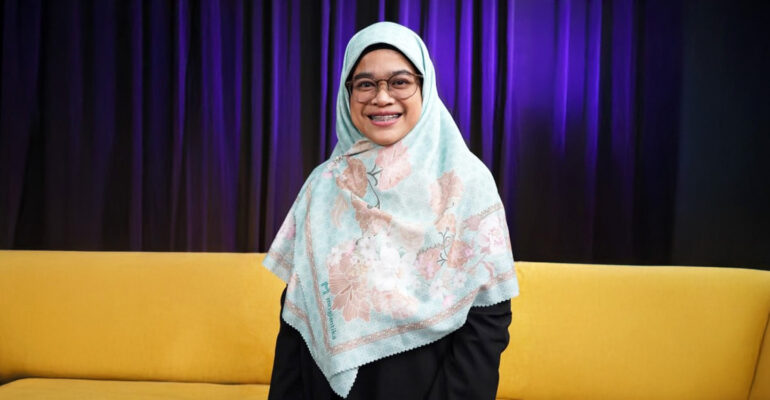IPB University Psychologist Shares Tips for Overcoming Mental Burden During Eid Asked When to Marry, What Work?

Eid holidays are synonymous with togetherness and friendship. But behind the happiness, not a few people actually feel depressed and tired-both physically and emotionally. For example, during family gatherings, a number of intriguing questions are sometimes asked: when to get married? when to have children? what work? already own a house?
Not only that, during Eid there are drastic changes in routine, social pressure, and cultural expectations can be a trigger for stress, especially when you have to continue interacting with many people, such as receiving guests without pause or fulfilling various invitations.
Nur Islamiah, MPsi, PhD–-or Bu Mia– as she is affectionately known-is a psychologist and lecturer at the Faculty of Human Ecology, IPB University. She provides a number of strategies to help manage stress during Eid.
One important step she suggests is to manage personal expectations by setting psychological boundaries.
“We have no obligation and it is impossible to please everyone. We often feel that we have to smile, serve our guests, and maintain the atmosphere,” she said.
Therefore, when the atmosphere of Eid feels hectic, it is important to recognize our boundaries, such as choosing the conversations we want to participate in, or withdrawing for a moment without feeling guilty. Setting time and energy limits for socializing does not mean disrespecting others, but rather a form of keeping ourselves mentally healthy.
She also emphasizes the importance of giving yourself space. “Giving space doesn’t mean staying away, but it’s a way of maintaining emotional capacity. Without that space, it’s easier to feel tired, offended, and even empty— even when we’re surrounded by many people.”
Furthermore, Mia explains the importance of balancing being with family and making space for yourself. “To be fully present for others, we must also be present for ourselves,” she says.
One simple way to maintain balance is to take a moment for yourself, such as waking up early to enjoy some quiet time or a few minutes alone in your room.
The social pressures that often arise during Lebaran – such as questions about work, or life achievements—can be an additional mental burden for some people.
Mia suggests responding with a diplomatic yet personal response, such as “It’s a work in progress, please pray for me.”
“This kind of answer is enough to maintain comfort without having to explain too much,” she explains.
If feelings of pressure or emotional exhaustion arise, Mia reminds us not to ignore these emotions. “It’s okay to feel tired in the middle of a happy atmosphere. Validation of feelings is important,” she says. “Look for simple ways to calm down–-such as taking a short walk, making ablutions, or taking time to worship solemnly.”
For those celebrating Eid alone, Mia says that loneliness can be more pronounced, especially when you see other people gathering and celebrating with extended family. “It’s okay to feel sad or empty. Feeling alone at a moment like this is normal,” she said.
She suggests that individuals should still try to maintain emotional connections, even if they are not physically with the people closest to them. “Call your loved ones, make video calls even if it’s only for a short time, most importantly, don’t keep it all to yourself.”
According to her, simple steps like these can help one feel connected and reduce loneliness in the midst of celebrations.
In closing, Mia says that Eid is not a race to look the happiest or the most successful. “We don’t have to be strong, and we don’t have to be perfect. Making space for ourselves is actually a form of mature emotional strength,” she concluded. (IAAS/LAN)



